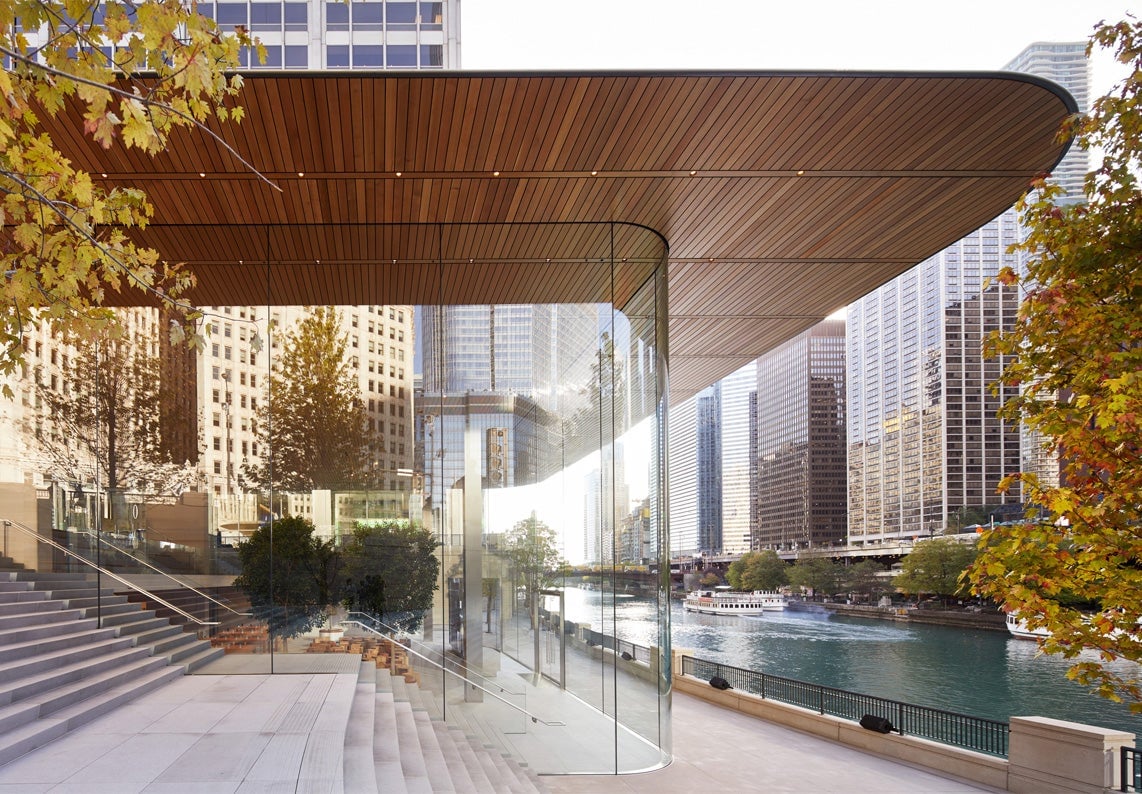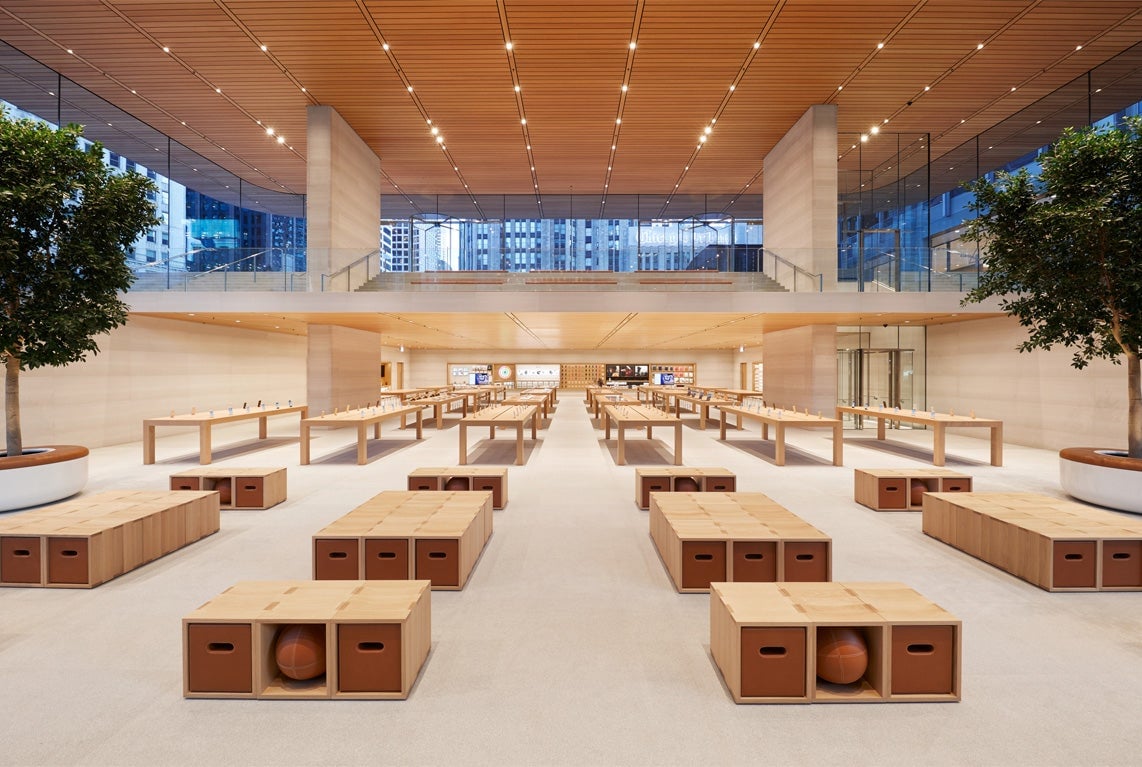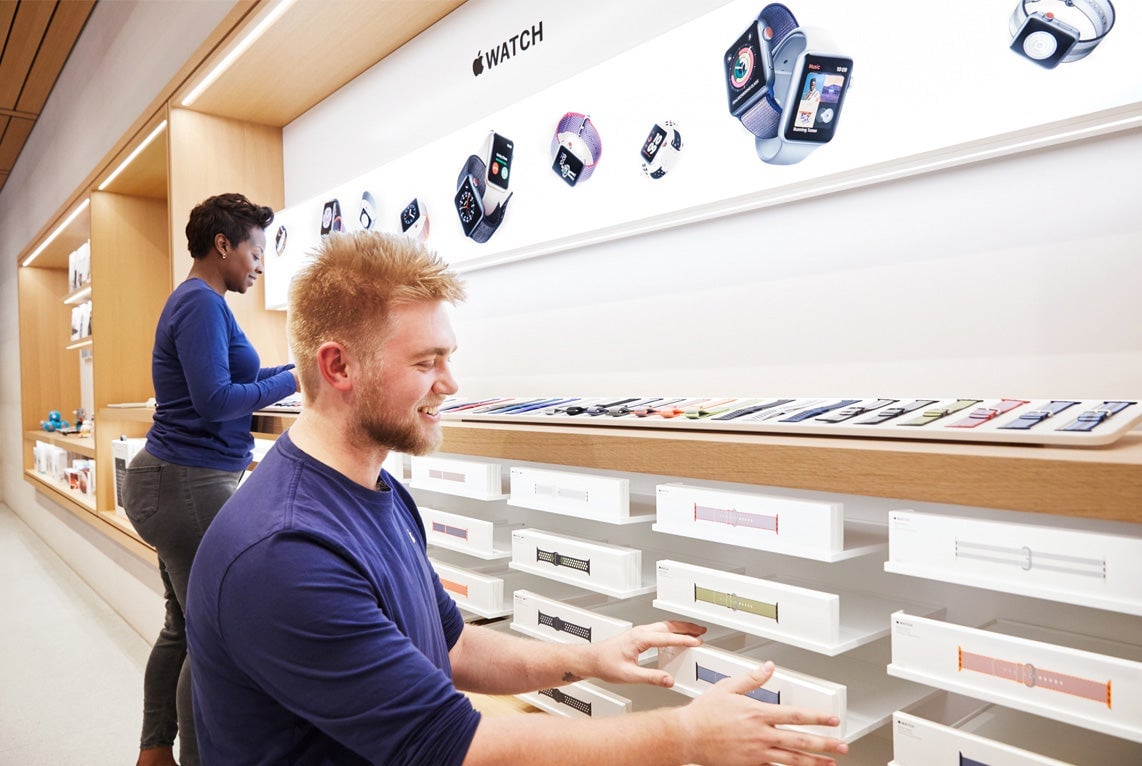Silicon Valley’s march to reshape American culture just got clearer with a near-invisible store in Chicago
Apple has a new store in Chicago, and if you look closely, you might even see it.


Apple has a new store in Chicago, and if you look closely, you might even see it.
Of course, Apple fully intended the store’s near-invisible aesthetic, as the company does with everything it designs. With its 32-foot glass walls that blend seamlessly into the riverfront’s landscape, the store, dubbed Michigan Avenue, is more ethereal membrane than tangible building, more hip hangout spot than boring retail.

The $27 million landmark is the latest, most elegant example of Apple’s “Town Square” concept, a reboot of their iconic glass-box store. Inside, the Genius Bar has been swapped for “Genius Grove,” “The Forum” carves out a space for seminars and sessions, “The Boardroom,” for business advice and training. Outside, “The Plaza” welcomes guests with 24-hour outdoor seating and complementary Wi-Fi.

“We really wanted to create the ultimate Town Square for Chicago and for the Midwest. There’s a little of my soul here,” Apple’s retail head Angela Ahrendts, the mastermind behind the idea, told CNET.
The store also reboots the Chicago waterfront, which was formerly “underutilized” because of a “cliff-hitch” in the previous plaza’s design, Stefan Behling, an architect at Foster + Partners, the firm who took on the project’s design, told the Chicago Tribune.
Apple’s foray into city redesign speaks to an emerging trend of tech giants taking over cities. In its call for proposals, due today, for the location of its second headquarters, for example, Amazon has cities clambering over one another in desperate attempts to outbid everyone else. And it’s no wonder. “HQ2” promises to bring its host 50,000 jobs and a $5 billion injection into the economy and infrastructure.
With its over $800 billion market cap today, Apple has long been the most valued company in the world. Tech companies have an outsized share of the economy’s capital, and with that, their influence over cities will only grow.